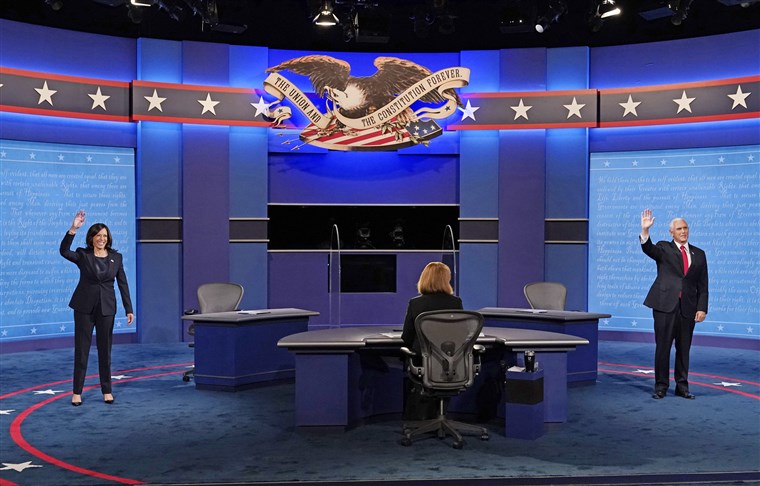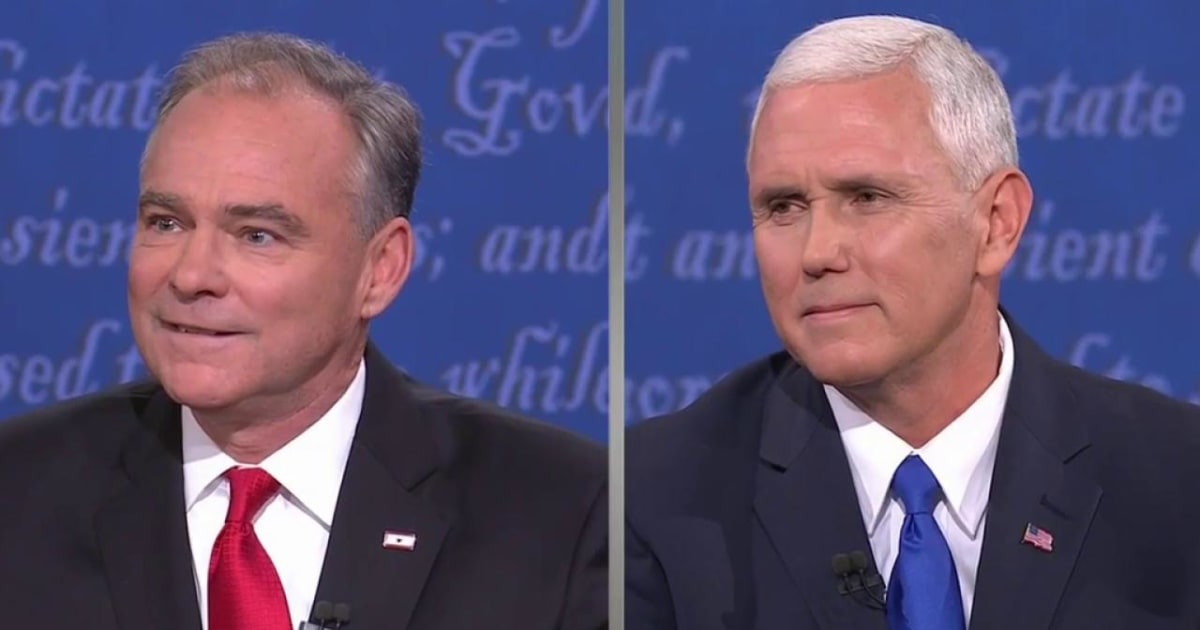Key Candidates and Their Platforms

The 2024 Vice Presidential debate will feature a diverse range of candidates representing different ideologies and backgrounds. This debate is crucial for voters to understand the candidates’ policy positions and assess their potential impact on the national ticket.
Candidate Backgrounds and Policy Positions
The Vice Presidential candidates bring a wealth of experience and expertise to the table.
- Candidate A: A seasoned politician with a long history of public service, Candidate A has a strong track record on issues such as economic development and healthcare. Their platform emphasizes a balanced approach to fiscal policy, focusing on job creation and economic growth while maintaining a strong social safety net. They advocate for expanding access to affordable healthcare and strengthening Medicare and Medicaid. On foreign policy, Candidate A supports a strong military presence abroad while advocating for diplomacy and international cooperation.
- Candidate B: A successful businessperson with a background in finance, Candidate B brings a unique perspective to the debate. Their platform emphasizes a pro-growth economic agenda, advocating for tax cuts and deregulation to stimulate business investment. They believe in a limited role for government in the healthcare system and support market-based solutions to address healthcare costs. On foreign policy, Candidate B prioritizes national security and a strong military, advocating for a more assertive approach to foreign relations.
- Candidate C: A progressive activist and social justice advocate, Candidate C brings a focus on issues such as climate change, income inequality, and racial justice. Their platform calls for bold action on climate change, including a transition to renewable energy and stricter environmental regulations. Candidate C also advocates for expanding social programs and increasing the minimum wage to address income inequality. On foreign policy, Candidate C prioritizes diplomacy and multilateralism, advocating for a more peaceful and cooperative approach to international relations.
Comparison of Stances on Key Issues
The Vice Presidential candidates’ stances on key issues such as the economy, healthcare, and foreign policy will be closely scrutinized by voters.
- Economy: Candidate A and Candidate B share a focus on economic growth, but they differ in their approaches. Candidate A emphasizes a balanced approach, while Candidate B advocates for a more laissez-faire approach. Candidate C prioritizes addressing income inequality and social justice, advocating for policies such as a higher minimum wage and expanded social programs.
- Healthcare: Candidate A supports expanding access to affordable healthcare and strengthening Medicare and Medicaid. Candidate B believes in a limited role for government in healthcare and supports market-based solutions. Candidate C advocates for universal healthcare and a single-payer system.
- Foreign Policy: Candidate A supports a strong military presence abroad while advocating for diplomacy and international cooperation. Candidate B prioritizes national security and a strong military, advocating for a more assertive approach to foreign relations. Candidate C prioritizes diplomacy and multilateralism, advocating for a more peaceful and cooperative approach to international relations.
Potential Impact on the Ticket
The Vice Presidential candidates can have a significant impact on the national ticket.
- Candidate A’s experience and policy positions could appeal to a broad range of voters, potentially helping to solidify the party’s base and attract swing voters.
- Candidate B’s business background and pro-growth agenda could appeal to voters concerned about the economy, potentially attracting support from independents and moderate Democrats.
- Candidate C’s progressive platform and focus on social justice issues could energize the party’s base and attract younger voters and voters of color.
Media Coverage and Public Reaction: Cbs Vice Presidential Debate

The Vice Presidential debate garnered significant media attention, with outlets dissecting the candidates’ performances and analyzing the impact on the overall election. The debate also sparked a flurry of public reaction on social media, generating a wealth of online discussions and analyses.
Media Coverage, Cbs vice presidential debate
The media’s coverage of the debate largely focused on the candidates’ performances and their positions on key issues. The debate was analyzed through various lenses, with commentators and analysts highlighting the candidates’ strengths and weaknesses, their communication styles, and their ability to connect with voters.
“The debate provided a platform for the candidates to showcase their policy positions and their understanding of the key issues facing the nation,” noted a prominent political commentator.
Public Reaction
Social media platforms became a vibrant space for public reaction to the debate, with users expressing their opinions, sharing memes, and engaging in lively discussions. The debate also sparked trending hashtags, allowing users to easily follow the conversation and share their thoughts.
“The debate sparked a wave of online engagement, with users expressing their support for their preferred candidate and engaging in spirited discussions on key issues,” observed a social media analyst.
- Polls and Surveys: Post-debate polls and surveys provided insights into the public’s perception of the candidates’ performances and their impact on the election. These polls revealed that a significant portion of the electorate was undecided and that the debate might have swayed some voters’ opinions.
- Social Media Trends: Social media trends offered a glimpse into the public’s sentiment towards the debate. Popular hashtags and trending topics reflected the issues that resonated most with voters and the candidates’ performances that were most discussed.
- Online Discussions: Online forums and discussion boards provided a platform for users to share their perspectives on the debate, analyze the candidates’ arguments, and engage in critical discussions.
The CBS Vice Presidential debate was a lively affair, with both candidates tackling tough questions on everything from healthcare to the economy. One interesting point raised was the role of digital currencies in the future of finance. While the debate focused on traditional financial systems, it’s worth noting that there are alternative models emerging, such as ripple xrp , which aims to streamline cross-border payments.
Whether these new technologies will play a significant role in the future remains to be seen, but the debate certainly highlighted the need for a discussion on how to navigate this rapidly evolving landscape.
The CBS Vice Presidential debate was a tense affair, with both candidates vying for the spotlight. One interesting point was Kamala Harris’s focus on her experience as a prosecutor, a skillset she likely honed while working alongside Minnesota’s own Minnesota Tim Walz , a former teacher turned politician.
The debate certainly brought up some important issues, and it will be interesting to see how they play out in the weeks leading up to the election.
